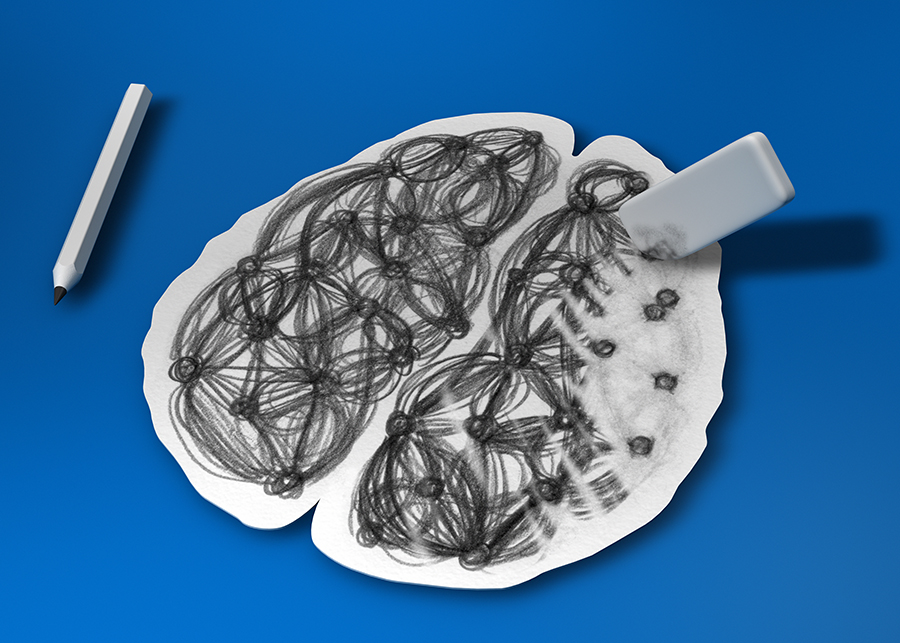By Cheryl Steinberg
It’s clear by now that drugs have intense effects on brain chemistry and structure. It’s also come to light, as we’ve recently reported, that memory might play a profound role in substance abuse and addiction.
In fact, memories associated with drug use are thought to be a leading force driving the impulses of drug addiction. That’s because the brain reinforces memories by giving them emotional weight, among other things. The result, then, is a personalized blueprint of rewards and cues that guide us in our fundamental decision-making.
And drug use, with its intense effects, creates memories that are so powerful that they hijack the brain system, turning physiology – the organic, natural processes, into pathology, or disease, in layman’s terms.
Researchers have identified the mechanism in the brain that enables this powerful role of memory in drug addiction. And their discovery opens up a whole new area of research for targeted therapy that would change or deactivate this mechanism, making drug addiction less compulsive.
Turning off the mechanism would be like “diminishing the emotional impact or the emotional content of the memory, so it decreases the motivation to relapse,” said Barbara Sorg, a professor of neuroscience at Washington State University, Vancouver. Her findings can be found in the latest Journal of Neuroscience.
Cocaine and the Brain: Can Weakened Drug-Related Memories Treat Drug Addiction?
Washington State University researchers Sorg and Megan Slaker, a doctoral candidate in neuroscience, conducted their study on male rats. The rats were given cocaine in a specific setting – a ‘drug cage’ – so as to condition them to associate the drug experience with that place. With each new experience taking cocaine, the rats would draw on memories from previous experiences in that location, reinforced them with new information and in effect fortifying the drug-using memory.
In one group of rats in the study, the researchers removed brain structures that act as ‘nets’ surrounding a high-order area of the brain essential for attention, cognition, inhibitory behavior, learning, and memory. And the nets’ ability to strengthen or weaken is affected by memories as they are recalled and reinforced.
Their findings are promising: the rats that had had their nets removed were less interested in being in the drug cage.
“When we manipulated them and removed these nets from the prefrontal cortex, we saw that our animals had poorer memories,” said Slaker. “That was a very novel finding since no one else has ever looked at these structures within the prefrontal cortex in relation to a drug memory.”
Sorg noted that the procedure more likely dulled the rats’ drug-using memory rather than erase the drug memory, altogether, and in effect, lessened its emotional power. These findings open up the possibilities of producing a way to specifically target such brain structures and processes as a protein (the “nets” in the study) in order to counteract cocaine’s powerful influence over memories.
Memories related to drug use are often more intense than other memories, making it difficult to break the cycle of drug abuse and addiction. It’s true: for people seeking recovery from cocaine, alcohol, and other drugs, it’s essential that they change the people, places, and things in their lives that they associate with their drug use because this will more than likely lead to relapse. For drug addicts, the ‘high’ comes more from the anticipation of getting and taking a drug than when the drug is taken and ‘kicks in.’ That alone should indicate the powerful role memory plays in drug addiction. Please call toll-free 1-800-951-6135 today to speak with a professional about addiction and treatment options. Or for suggestions on how to help a loved one who struggles.
